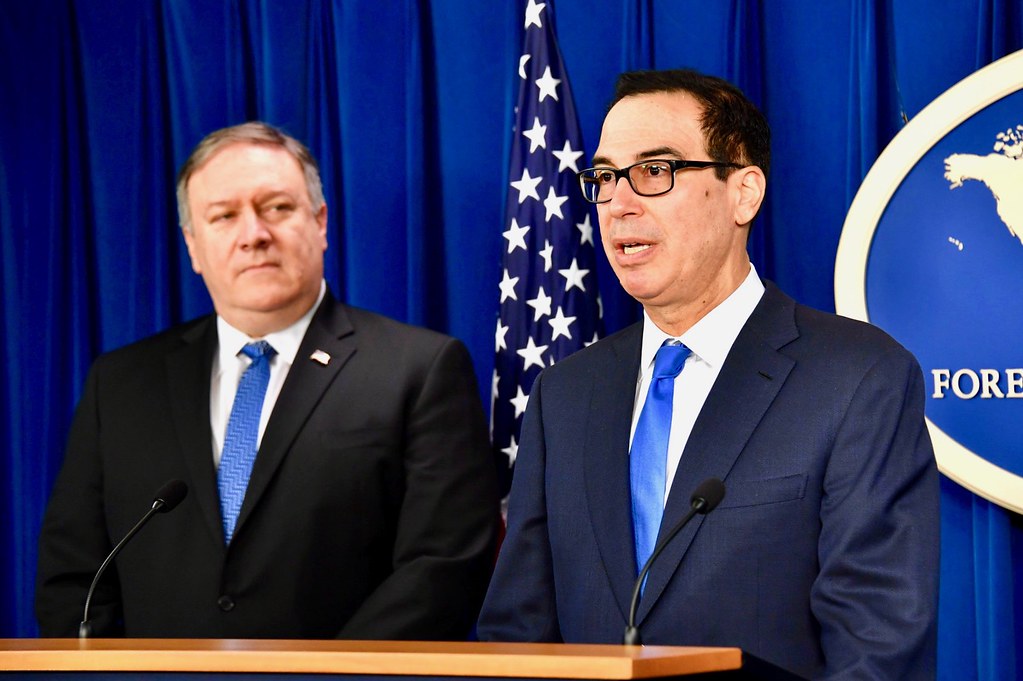US to impose sanctions on Iran’s metal exports and leaders

The Trump administration imposed new sanctions on Iran on Friday, including penalties on the Islamic Republic’s metals and some senior leaders, following Tehran’s attack on U.S. military bases.
The sanctions target steel, aluminum, copper and iron, as well as eight senior Iranian officials and sectors of the economy, such as construction, manufacturing, textiles and mining, the Treasury Department said.
“This order will have a major impact on the Iranian economy,” President Donald Trump said in a statement. “These punishing economic sanctions will remain until the Iranian regime changes its behavior.”
The move to expand penalties on the Islamic Republic comes one day after Trump said Iran would be sanctioned “immediately” for the airstrikes against two U.S. military installations in Iraq, which resulted in no casualties.
Waivers for investigators
Treasury Secretary Steven Mnuchin, speaking at the White House on Friday, also said that the U.S. will issue waivers on sanctions against Iran to allow investigators from the U.S. and other countries to participate in the probe of a Ukrainian jetliner crash in Tehran earlier this week. U.S. and other nations’ officials have said the passenger jet was likely downed by an Iranian missile around the time Tehran was attacking the bases in Iraq.
The sanctions target steel, aluminum, copper and iron, as well as eight senior Iranian officials and sectors of the economy
The administration first prepared the sanctions in December, before tensions escalated between the U.S. and Iran, leading to the Jan. 2 U.S. airstrike in Baghdad that killed top Iranian general Qassem Soleimani. The new measures are aimed at cracking down on Iran’s few remaining sources of export revenue and squeezing the nation’s economy to force its leaders back into negotiations for a new nuclear agreement.
The Treasury Department also sanctioned foreign purchasers and transporters of Iranian steel, saying they were providing “critical materials for Iranian metal production.”
In a statement, Treasury said the actions Friday target the 13 largest steel and iron manufacturers in Iran and top copper and aluminum producers.
Crippling economy
Tehran has repeatedly rebuffed the Trump administration’s overtures to talk, even as existing sprawling sanctions have crippled the Iranian economy. Yet President Hassan Rouhani has confronted street protests against price increases and corruption that has left his government politically vulnerable, potentially benefiting hardliners even more opposed to Washington.
“By cutting off the economics to the regime, we are having an impact,” Mnuchin said.
Guidance from the State and Treasury Departments will warn ship insurers, banks, charter companies, port owners, crews and captains that they all face sanctions exposure if they can’t account for the legitimacy of the cargoes they carry.
The administration is seeking to close a significant loophole that allows Iran and other nations to avoid sanctions: ship-to-ship transfers of crude oil, refined petroleum and other goods.
Standing down
Trump on Wednesday attempted to lower tensions with Iran by standing down from further military actions that could have sparked a new war in the Middle East.
Trump and top administration officials have said they are open to new talks with Tehran, but Iranian leaders have not been eager to reciprocate.
Trump said Thursday he ordered the killing of Soleimani because the Iranians sought to destroy the U.S. embassy in Baghdad.
Pressed on Friday to give more details on that claim and other statements that Soleimani planned an “imminent” attack, Secretary of State Michael Pompeo said, “We had specific information on an imminent threat and those threats included attacks on U.S. embassies.”
Pompeo told reporters at the White House that the threat was “against American facilities including American embassies, military bases, American facilities throughout the region.”
(By Jordan Fabian and Jennifer Jacobs, with assistance from Nick Wadhams)
{{ commodity.name }}
{{ post.title }}
{{ post.date }}




Comments